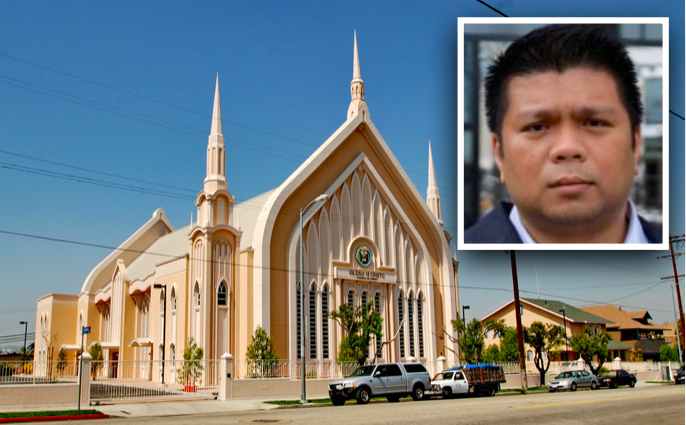
A Filipino man has been granted asylum in Canada due to fears he could be assassinated by followers of the Iglesia Ni Christo.
Lowell Menorca is a former unordained minister with the Philippines-based Iglesia Ni Cristo (INC).
He became well known in the Philippines after he broke with church leadership and became critical of the organisation.
As a result, the 40-year-old claims that members of the INC abducted him, attempted to kill him and threatened his family.
These claims have now been accepted by Canada’s Immigration and Refugee Board (IRB), which concluded that the INC was “motivated by a vendetta” and had “both the means and the motivation to seriously harm or kill” him, should he return to the Philippines.

The boards’s decision was revealed today (Thursday, January 25) by CBC News, which obtained a “lightly redacted” copy of the ruling.
It ends 20 months of uncertainty for Mr Menorca, who fled to Canada in April 2016.
“I was ecstatic. I was overcome with joy,” he said. “I cried and I cried, and thanked God that finally this was the vindication I was praying for.”
Church’s power and influence
The board also raised concerns about the INC’s influence in the Philippines, as well as general concerns about the rule of law in the country.
The report continued: “When the panel considers the links between the INC and the law enforcement authorities in the Philippines, the general climate of impunity that pervades Philippines law enforcement particularly with respect to the issue of extrajudicial killing, and the level of corruption that exists in the Philippines government and law enforcement apparatus, the panel is satisfied [Menorca] would be unable to avail himself of state protection, from the risks that he fears in that country.
“The Iglesia Ni Christo’s power and influence extends to an ability to utilise police to target the claimant.”
Mr Menorca says his troubles began when INC leadership accused him of links to an anonymous blogger critical of the church.
As a result, the board accepted Mr Menorca’s claim that in July 2015, he “was kidnapped… by armed men led by an INC minister. The armed men were police officers acting outside their jurisdiction. These individuals… then threw a grenade into the back seat of the vehicle in a possible attempt to kill the claimant. The grenade didn’t go off”.
The board also accepted an allegation that “he was then taken to the INC central compound … and detained there with his wife and child for three months,” until he made “a televised statement denying he had been abducted by the church”.
When Mr Menorca later recanted that statement “he began to receive death threats and harassment through social media”.
In the past, the INC has consistently denounced Mr Menorca’s claims as “fabricated” and “devious”.
Family to be reunited
Now that the dissident has refugee status, he’s hoping to be granted permanent residency so he can bring his family to Canada. They remain in hiding in an undisclosed Asian country.
“They will never be safe, fully safe, unless we’re all together,” he said.
The INC was founded in 1914 by Felix Manalo, who the church claims was “the last messenger of God”.
In the 2010 national census, 2.45 per cent of the population said they were members, making it the third largest religion in the Philippines after Roman Catholicism and Islam. It also has supporters around the world, particularly in overseas Filipino communities.
The scale of the church’s wealth is a closely guarded secret, however in July last year, we reported it had bought a ghost town in Connecticut for $1.85 million. To celebrate its centenary in 2014, the church built the Philippine Arena, which is said to be the world’s largest indoor domed arena.

Comments are closed.